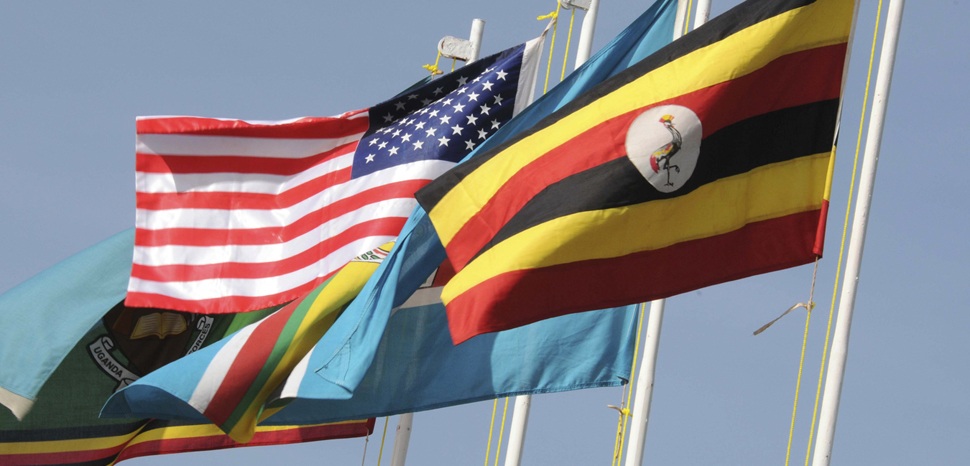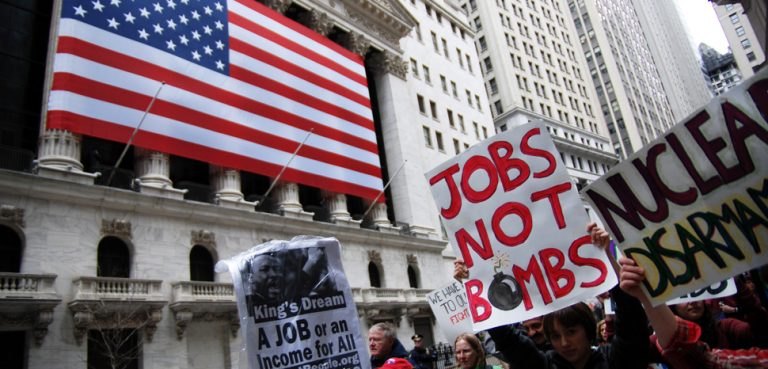Justice Potter Stewart stated in his concurring opinion for the 1964 Jacobellis v. Ohio case: “I know it when I see it.” This is the same sentiment one gets when observing the domination of the African continent by the People’s Republic of China to maintain high economic growth rates and secure dependency on Beijing’s manufacturing exports. Of the 54 countries on the African continent, 46 are entangled in the predatory investment schemes of China that exploit the resource curse of Africa. The importance of Africa is surely undeniable and should not be downplayed by any means. The continent possesses 90% of global supply of platinum and cobalt, 50% of global gold supply, 66% of global manganese supply, 35% of global uranium supply, and 75% of global coltan supply, which is extremely important for high technology electronic consumer and military products. Africa is a behemoth entity not just in land mass (11.7 million square miles) and population size (1,342,050,205 people) but enormous economic potential that possesses global implications once infrastructure and institutional reforms are implemented for the people of Africa. Not China.
Africa is the next geopolitical hotspot indicated by major population growth and future global market orientation. Over the next 80 years, Africa is projected to grow from 1.3 to 4.3 billion people by the year 2100. As Africa continues to unravel due to socioeconomic tensions produced by artificial borders that do not take into consideration historical tribal and ethnic lands, the continent of 1.342 billion people has fallen for the illusion of China-sourced economic development rather than economic reform, political sustainment, and transparency. Manipulation of these institutional dysfunctions across Africa provides China with the opportunity to construct an asymmetrical employment of economic influence over critical infrastructure, which in turn determines the extent to which Africa will be able to connect with global trade flows of digital data and natural resources.
Since 2011, China has accumulated over 40% of infrastructure shares across Africa while EU contractors diminished 10% from 44% to 34% and the United States substantially decreasing from 24% to 6.7%. The objective for China is not necessarily promoting African ingenuity, innovation, and prosperity. It is about connecting the vast resource wealth to the Chinese global economic web to sustain China’s growing economic footprint at the expense of African domestic development and growth. China’s successes on the African continent is derived from the lack of interior infrastructure that would otherwise increase inter-African trade and prosperity. Currently, inter-African trade only amounts to approximately 17% of total trade on the continent. The low percentage of inter-African trade provides avenues for the Chinese government to exploit the lack of transportation and logistics infrastructure; therefore, expanding African dependency on the over 10,000 Chinese state-owned enterprises and exploitative investments. Between 2005 and 2018, the Chinese government allocated $299 billion in investments to Sub-Sahara Africa and pledged an additional $60 billion in 2018 to Africa while accumulating approximately $130 billion in loans to African countries since the year 2000.
The actions of China are borderline fraudulent and deceptive as the investments are directed not toward labor-oriented manufacturing, which would allow for a growth in employment and growth in living standards and sustainable infrastructure. In reality, the PRC is directing its attention and investments toward resource access, resource extraction, and transportation infrastructure to connect port terminals and rail networks to resource deposits. This still generates employment and a degree of economic growth but mostly for the benefit of China, not the average African. As China continues to prioritize the expansion of wealth accumulation and economic institutions, as observed through history, the growth of economic power and influence transitions toward catalyzing military advancements and prowess, national revitalization, and grandiose grand strategies that are geared toward becoming a regional and/or global hegemonic power.
The intentions of Beijing are clear: to replace the United States as the global hegemonic power yet preserve the current liberal economic and financial order, which has contributed to the historical rise of China over the past 42 years. Samuel Huntington hinted at the correlation between growth in economic affluence and prosperity with military power. In his book The Clash of Civilizations, Samuel Huntington stated that “non-Western societies, particularly in East Asia, are developing their economic wealth and creating the basis for enhanced military power and political influence. As their power and self-confidence increase, non-Western societies increasingly assert their own cultural values and reject those ‘imposed’ on them by the West.” As Beijing continues on course with the Belt and Road Initiative, China has become far more aggressive in the advertising and promotion of their political, economic, and financial ideology around the world, but more notably in Africa at the detriment of a seemingly regressing influence of the United States on the global stage.
Africa and the United States have an opportunity, if done correctly, to lay the framework for diminishing China’s influence via the Continental African Free Trade Area (AfCTA). The AfCTA could increase inter-Africa trade by 52.3% via trade liberalization reforms such as reduction of tariff and non-tariff barriers that hinder trade. As Sino-Africa trade dropped 14% to $41 billion during the first quarter of 2020 amid the coronavirus pandemic as Chinese exports to Africa fell 17.5%, African responsibility to its own development is now more important than ever. The United States has the economic and financial capacity through its tenets of economic liberalism and a plethora of ample investors and stakeholders to become connected to the AfCTA and take an active role in raising the living conditions and standards of living for Africans. The core strength of the United States is not its military or political institutions but rather its economic institutions that laid the foundations for free political institutions and eventual military domination. However, U.S. policymakers, before, during, and potentially after the COVID-19 pandemic, have neglected the strategic importance of the continent of Africa. It is not too late for the United States to prioritize partnerships to uplift African manufacturing capabilities as a viable competitor to Chinese manufacturing through pushing forward advocacy of US-AfCTA cooperation. Yet seemingly, the trend is the further entrenchment of China in Africa through coordinated investments and state-owned enterprises. Dennis Wang stated in his book Reigning the Future: AI, 5G, Huawei, and the Next 30 Years of US-China Rivalry, China has become the global “fertile testing ground for the application of next-generation advances like artificial intelligence, big data, and fifth-generation telecommunications. Effectively, the country has ‘leapfrogged’ other technologically advanced countries.” This leapfrog effect is what China seeks across Africa while simultaneously becoming the decision-maker of how and to what degree the African continent will be able to integrate into global routes of digitization, natural resources, development, manufacturing, production, and economic growth.
Continual US neglect of investment and cooperation with Sub-Saharan Africa is a damaging long-term failure and blind spot for Washington objectives to promote the rule of law, economic liberalization and reform, political transparency and reform, and reduction of poverty. It is in the best interest for the United States as well as the European Union to be integrated in the next global epicenter of population and market growth in a joint effort and initiative to roll back China’s political, economic, and financial influence over African society. The main course for reversing gains made by China is the promotion of domestic African innovation and ingenuity, supporting an increase in intra- and inter-African trade, development of economic institutions, strengthening of African border security, and uplifting African society to hold political institutions accountable to action, not through violence but through stable political protocol and procedures. Granted this is difficult amid the complications and distortion of African history from artificial borders post-decolonization. However, the reduction of Chinese influence within Africa stems from a holistic approach between African countries and the United States.
The asymmetric nature of the Chinese presence has been made clear. This is no better than the colonial exploitation of the continent by colonial empires since the 1790s. Through economic and financial statecraft, the Chinese are exploiting and annexing the next global population and economic epicenter for Beijing’s empowerment. There is more to Africa than counterterrorism operations and resource exploitation. If the US neglects the continent, access to the next geopolitical center is lost and Beijing is victorious.
The views expressed in this article are those of the authors alone and do not necessarily reflect those of Geopoliticalmonitor.com or any institutions with which the authors are associated.




